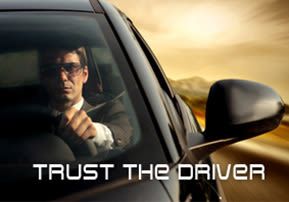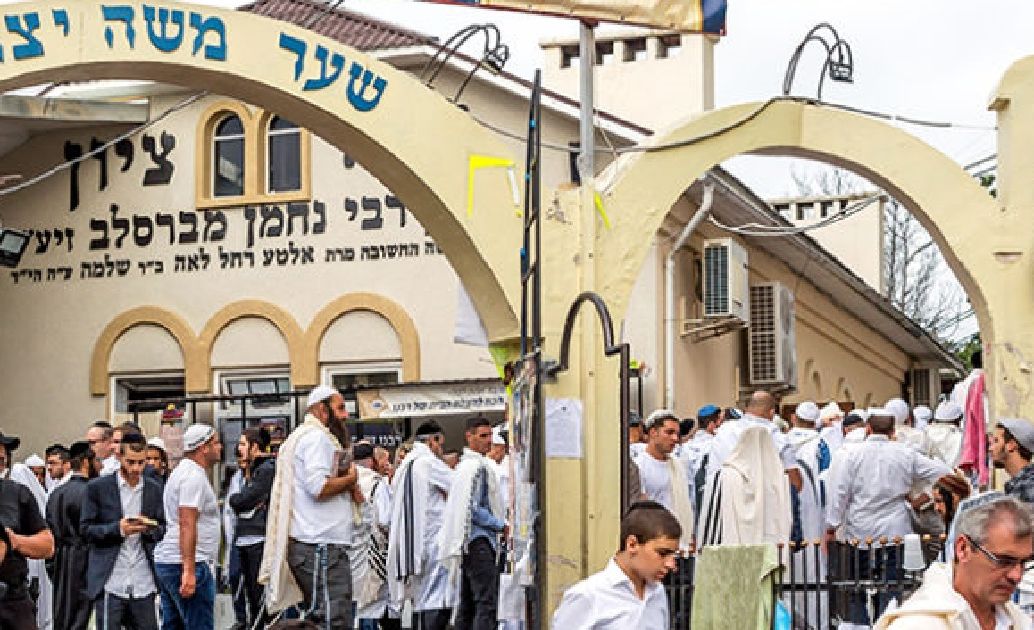
Trust the Driver
Either way, you are going to get to your destination. But one way, you’ll be in good shape, relaxed and raring to go, and the other – you’ll be a basket-case...

On one of his English-language emuna CDs, Rabbi Brody gives an analogy about a passenger on a bus. You are a passenger on a bus. You have two options: you can either trust the driver to get you to your destination, to where you need to go, and you can lay back and enjoy the ride; or, you can worry and panic about  every turn in the road, and stress about every real and imaginary obstacle, problem and danger you face on the trip.
every turn in the road, and stress about every real and imaginary obstacle, problem and danger you face on the trip.
Either way, you are going to get to your destination. But one way, you’ll be in good shape, relaxed and raring to go, and the other – you’ll be a basket-case. If you want to enjoy your trip, you have to trust the driver.
If you really want to understand this analogy, take a trip with a Ukrainian bus driver in the middle of winter. The Ukraine gets a lot of snow. If you are driving around a big city like Kiev, the authorities will probably make a bit of effort to clear the snow and ice off the roads to make them drivable.
But we weren’t driving through any big cities. We were driving from Uman to the town of Breslev, to visit the grave of Rabbi Natan, Rabbi Nachman’s main student, and the person most responsible for safeguarding and passing on Rabbi Nachman’s teachings.
Our driver, Sasha, was a typical Ukrainian, about 6’4”, bald, and very rude. He was very ‘bus proud’, and I think that the site of all the passengers making crumbs with their bamba and pretzels upset him.
There were still 10 suitcases left on the snow when Sasha announced that the luggage compartment was full, and tried to shut it. After a few minutes of arguing, he opened it again, and a few of the passengers got out and rearranged the bags so that everything would fit.
At last, we were ready to go. But Sasha wasn’t. He disappeared for half an hour, probably for a last swig of vodka and a smoke. By the time he reappeared, we’d been sitting on the bus for about an hour and a half – still in Uman.
Finally, we were on the way. After a few minutes, I realized that the bus wasn’t driving in a straight line, but was zigzagging from side to side. One of my roommates was sitting at the front of the bus, so I went up to talk to her and see what was going on.
The road was full of ice and compacted snow. It was meant to be a dual carriage way, but whoever had cleared the road had decided to only clear a lane down the middle. So the bus driver was playing chicken with the oncoming traffic. As a vehicle would approach from the other direction, the driver would wait to see how big it was. If it was only a car, there was no question that the bus would continue straight, and the car would have to swerve on to the ice.
Things got exciting when the other vehicle was a bus or truck; then it was really a battle of wills, to see who would give way first – and Sasha was determined not to be the ‘chicken’.
I gulped, and went back to my seat. “Trust the driver,” I told myself.
We made a pit-stop for the toilets, and the bus got stuck on an ice ridge as it tried to turn round. Whoever hadn’t got out of the bus for the toilet now got out of the bus to give an opinion on how to get it free.
For twenty minutes, the bus went backwards and forwards, stuck in the same ice rut. My trip was called ‘Derech Tzadikim’ – the Way of the Righteous – and as I sat on the to-ing and fro-ing bus, I realized how apt that title was. In life, as on this journey, it seemed to be so hard to get anywhere. Often, the more you tried to move forward spiritually, the more ‘stuck’ you seemed to get, caught on some habit or trait that had frozen solid.
Eventually, the bus got free when a Ukrainian by-stander got some sort of sharp tool to stab at the ice, while one of the Jewish passengers found some cardboard boxes to put behind the wheels to give them more traction. The bus simply couldn’t move by itself.
Back on the bus, we still had about two hours to go until Breslev when we hit an ice-covered hill. The bus climbed; the bus slowed; the bus stopped. The bus started to reverse. Everyone wanted to know what was going on.
Ariel, our lovely Breslever tour leader came on the mike to explain that Sasha didn’t think the bus could make it up the hill. It was too icy, too steep and too dangerous. We’d have to miss Breslev, and go straight to Medzhiboz, to the Baal Shem Tov, instead. The bus erupted into songs, into prayers, into shouts.
“If you want to go to Breslev, you better start saying the name of the Tzadikim!” Ariel told us. “Start from Adam HaRishon, and work up!”
I wasn’t singing. I was too busy looking out the window at the steep incline either side of the road that the bus was coming dangerously close to, as it reversed. A few more centimeters, we’d be tumbling down an icy ravine. I started to look for my seat belt. There wasn’t one.
The bus stopped again, and I wondered where Sasha was planning to turn round – it looked far too narrow to risk doing a U-turn. Then we all realized together that he wasn’t planning to turn round. He was revving the engine like a Formula 1 driver, and in another second, he was racing up the icy, dangerous, steep hill at 100 miles an hour.
I was petrified. What an absolute nutter! But he made it. He got us up over the hill, and on to Breslev. The bus exploded into song and hand-clapping again. And I sat and thought about all the things I’d learnt on this journey.
How many times in life do we try to accomplish something, only to feel that we are going backwards? How many times do we try to ‘get over the hill’, only to slide even more backwards, away from our goal?
Sasha taught me a very important lesson. When he reversed the bus for 10 minutes, we thought that there was no way we were ever going to get to Breslev, to our destination. But that reversal is what got us up and over that slippery, icy, dangerous hill.
As in the Ukraine, so in our lives. Hashem is our ‘bus driver’, taking us to wherever we need to go. Sometimes, He takes us backwards a long, long way – and we can despair of ever making any progress. But that reversal is progress. It’s what we need to complete the next part of the journey.
By the end of my journey, I had a grudging respect for Sasha; he certainly knew how to handle his bus in some very difficult conditions. If I’d trusted the driver at the beginning of the trip, I would have enjoyed it a whole lot more.










Tell us what you think!
Thank you for your comment!
It will be published after approval by the Editor.